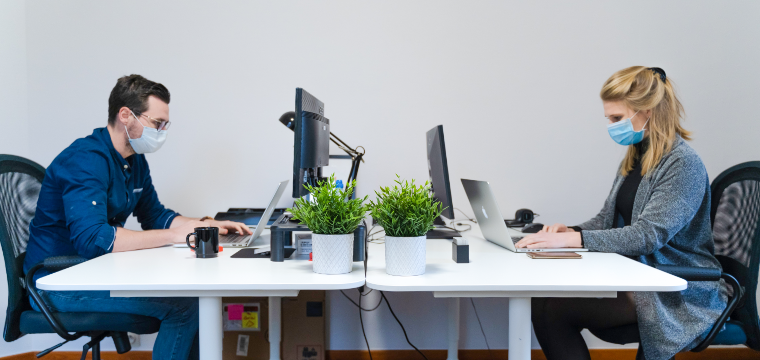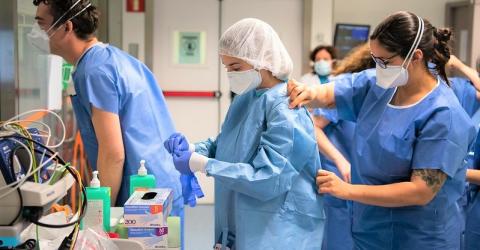With vaccine availability on the rise, many employers are gearing up to welcome their employees back into the office. Although that may be great news for some, others are rightfully concerned about the likelihood of contracting COVID-19 at work. That raises a key legal question: can you file a workers’ compensation claim if you get COVID-19 at work? Let’s take a look.
Filing a Workers’ Compensation Claim
Most employees are covered under standard workers’ compensation laws, which compensate workers for injuries suffered on the job. Filing a successful workers’ compensation claim involves proving that an employee was injured on the job while acting in the normal scope of their employment. For example, a factory worker injured while working with a machine would be grounds for a workers’ compensation claim.
Getting COVID-19 at Work
COVID-19 complicates the workers’ compensation process. A factory worker may rely on his explanation, testimony from co-workers or video footage to prove that the injury occurred on company time. Since COVID-19 is a virus, it is nearly impossible to prove that you contracted it while at work. As such, insurers are less inclined to approve these claims.
Given Missouri and Illinois laws, we find it highly unlikely that a traditional office employee could make a successful workers’ compensation claim for injuries resulting after contracting COVID-19. Although Missouri has adopted an emergency statute allowing first responders to claim workers’ compensation for COVID-19 exposure, the statute does not cover other employees. In Illinois, certain groups are eligible to file a workers’ compensation claim for COVID-19, but employers have ample leeway to challenge it. The burden of proof is diffucult for employees, and may be impossible to overcome in most situations.
What to Do Next
We understand the fear and anxiety that accompany this pandemic, and we want to do everything we can to help. If you or an employee you know has contracted COVID-19 after returning to work, please contact our attorneys. During your free consultation, we’ll review your case and offer clear recommendations for next steps.









